- Home
- Chiyoda Highlights
- Visiting key sites of SHIBUSAWA Eiichi, the man who made rapid progress in the Japanese economy.

The Taiga historical drama "Reach Beyond the Blue Sky" aired on NHK from February 2021. The main character of this drama, SHIBUSAWA Eiichi is known as the "father of Japanese capitalism", and one of the leading industrialists of Japan.
The reason why SHIBUSAWA was called the "father of Japanese capitalism" lies in his background.
After working for the government on economic and financial policy, he was involved in the establishment of more than 500 private companies such as the First National Bank, the Tokyo Stock Exchange, and the Imperial Hotel. In particular, the First National Bank, in which he played a central part in its establishment, was the very first stock company in Japan and its structure substantively developed the capitalist economy.
SHIBUSAWA, who established the foundation of the Japanese economy, had deep connections with many places throughout Chiyoda City, which he resided in. We embarked on a trip to explore his life by visiting sites related to him.
| Year | age | Main events related to Chiyoda. |
| 1840 | 0 | Tenpo 11 years |
| 1864 | 24 | Serves HITOTSUBASHI Yoshinobu. |
| 1866 | 26 | AS TOKUGAWA Yoshinobu becomes the Shogun, Eiichi becomes a retainer of the Shogunate. |
| 1871 | 31 | Moves to live in Ura-Jimbo-koji in Kanda-Ogawamachi (present day 1-chome, Kanda-Jimbocho, Chiyoda-ku) until July 1873. |
| 1873 | 33 | Becomes the founder and general supervisor of the First National Bank, and becomes the president in August the following year. |
| 1878 | 38 | Becomes the founder and chairman of the Tokyo Chamber of Commerce (present day Tokyo Chamber of Commerce and Industry). |
| 1887 | 47 | Becomes the founder and president of the Imperial Hotel (opened in 1890, becomes the executive chairman in 1893). |
| 1888 | 48 | Opens the Tokyo Jogakkan School for Women and becomes the accounting director (later the director of the school). |
| 1907 | 67 | Founds the Imperial Theatre and becomes the founding chairman (later its executive chairman). |
| 1931 | 91 | November 11th, eternal sleep |
*Created by the Chiyoda City Tourism Association based on the information available on the Shibusawa Eiichi Memorial Foundation website (https://www.shibusawa.or.jp).
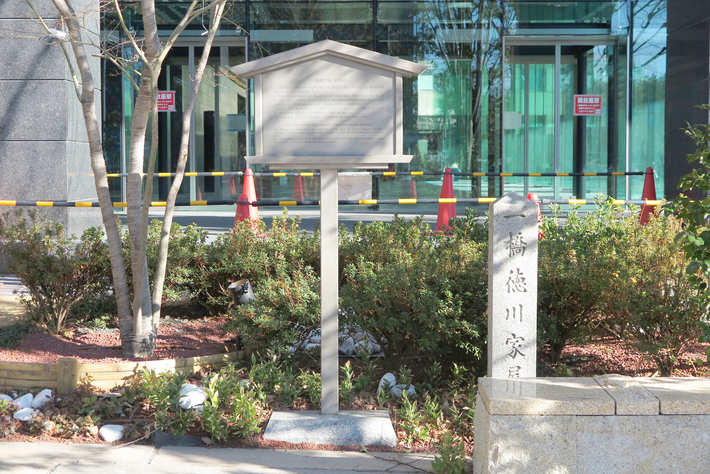
Our visit starts with the site of the family house of the HITOTSUBASHI TOKUGAWA clan, which is a three-minute walk from Subway Takebashi station. SHIBUSAWA served HITOTSUBASHI (TOKUGAWA) Yoshinobu under the recommendation of HIRAOKA Enshiro who was a retainer of the clan. The clan owned a vast estate which extended to near the Otemachi Government Building area as well as here.
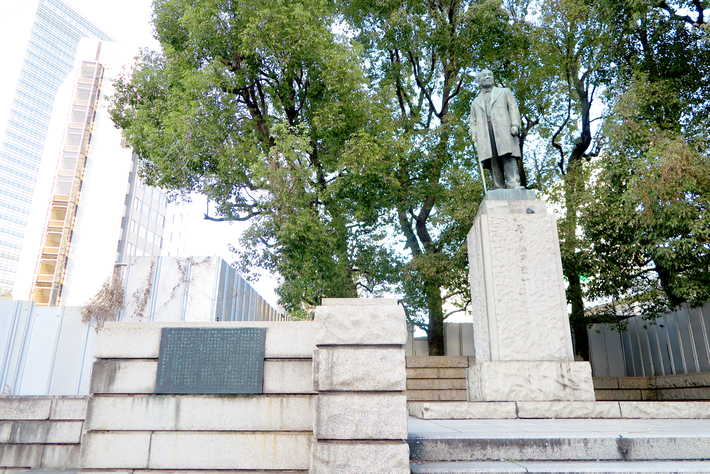
We next visited Tokiwabashi Park, which is a three-minute walk from Subway Mitsukoshimae station. A statue of SHIBUSAWA stands majestic and imposing in Tokiwabashi Park which faces the Nihombashi River.

Next, we visited the Marunouchi Center Building, located three minutes walk away from Subway Otemachi station. This place is also known as the site of the predecessor to Mizuho Bank, the First National Bank.
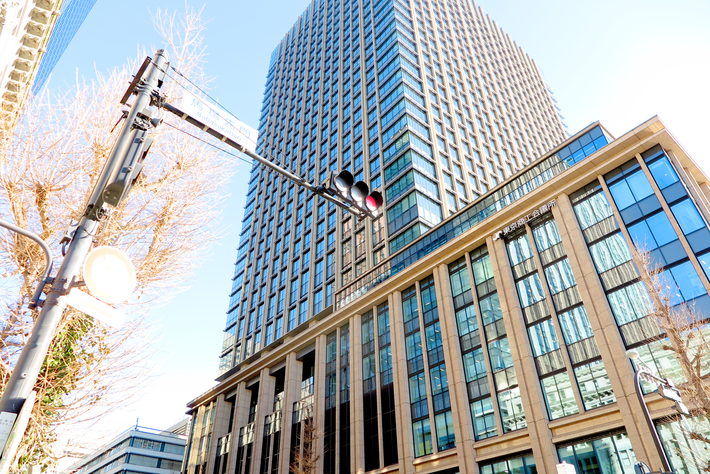
This is the Tokyo Chamber of Commerce and Industry, directly connected to Subway Nijubashimae
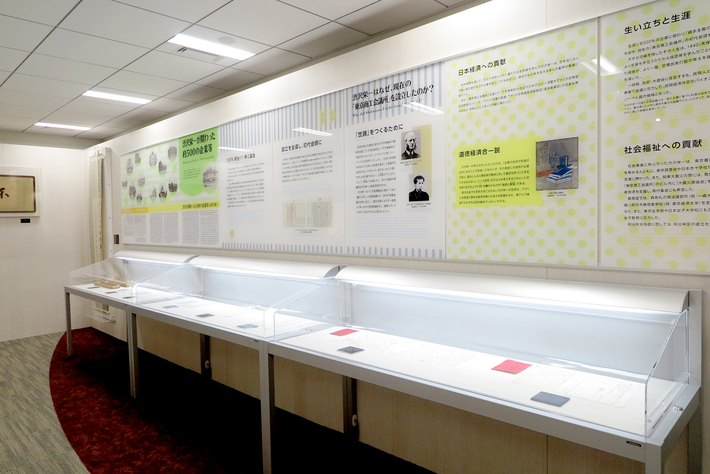
In November 2019, the Tosho Shibusawa Museum was opened on the sixth floor of the Tokyo Chamber of Commerce and Industry. The museum displays original written works and statues of SHIBUSAWA, and visitors can enter for free.
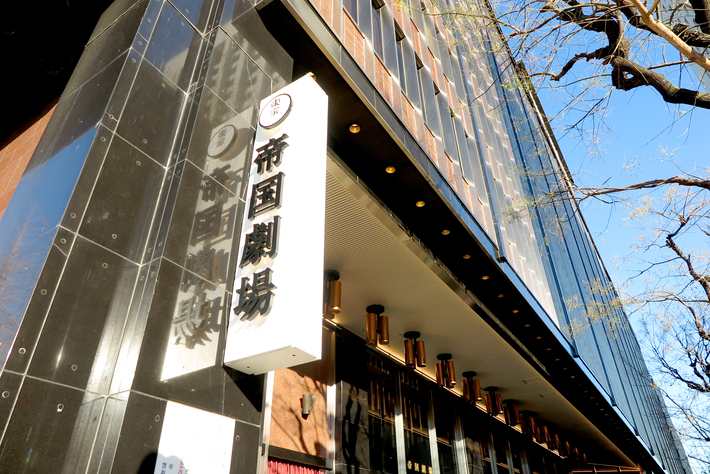
We next visited the Imperial Theatre which is direclty connected to the Subway Hibiya and Yurakucho stations. SHIBUSAWA, who was one of the creaters of this theatre was also its executive chairman when construction was completed in 1911.
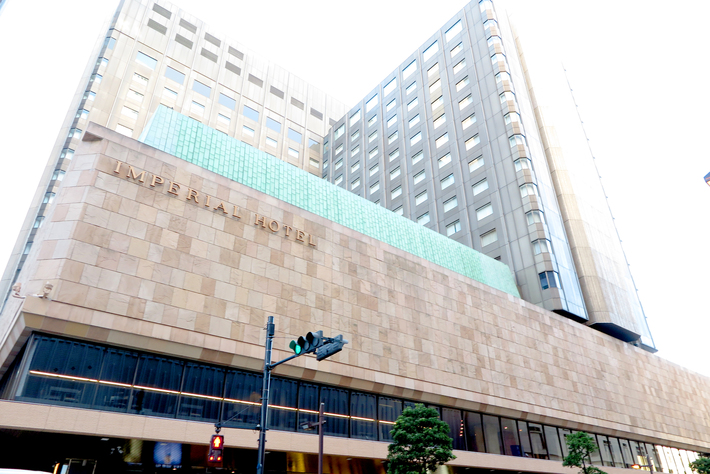
This is the Imperial Hotel Tokyo, which is a three-minute walk from Subway Hibiya and Uchisaiwaicho stations.
The Imperial Hotel was established at the urging of SHIBUSAWA and others in the political and financial circles as a state guest house to welcome foreign officials.

Imperial Hotel, Tokyo Read more
| Address | 1-1, UCHISAIWAI-CHO 1-CHOME, CHIYODA-KU, TOKYO 100-8558, JAPAN |
| TEL | 03-3504-1111 |
| Business Hour | 24 hours |
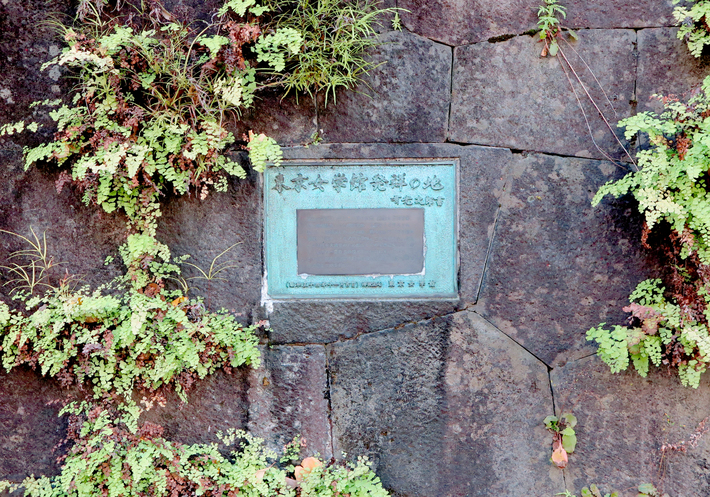
We last visited the birthplace of the Tokyo Jogakkan School for Women, which is a three-minute walk away from Subway Nagatacho and Akasaka-mitsuke stations. On the stone walls of the Official Residence of the President of the House of Councilors, there is a relief that reads "the birthplace of the Tokyo Jogakkan School for Women".

Remains of Edo era residence of Hitotsubashi domain
Imperial Palace・ Tokyo Sta.・ Hibiya
Detail

Tokiwabashi Park
Imperial Palace・ Tokyo Sta.・ Hibiya
Detail

Marunouchi Center Building
Imperial Palace・ Tokyo Sta.・ Hibiya
Detail

The Tokyo Chamber of Commerce and Industry
Imperial Palace・ Tokyo Sta.・ Hibiya
Detail

TOSHO SHIBUSAWA museum
Imperial Palace・ Tokyo Sta.・ Hibiya
Detail

Imperial Theater
Imperial Palace・ Tokyo Sta.・ Hibiya
Detail

Imperial Hotel, Tokyo
Imperial Palace・ Tokyo Sta.・ Hibiya
Detail

Founding Site of Tokyo Jogakkan
Koujimachi・Hanzoumon・Nagatacho
Detail
We have introduced eight sites with deep connections to the life of SHIBUSAWA Eiichi. Through visiting the places introduced here, thinking about the challenges SHIBUSAWA faced at the time, you may come to appreciate why he is called the "father of Japanese capitalism". You may be able to enjoy the Taiga historical drama "Reach Beyond the Blue Sky" by visiting these sites, and by becoming emotionally involved with the story.